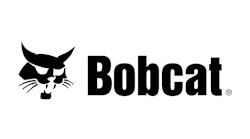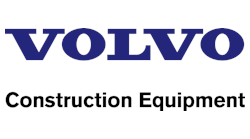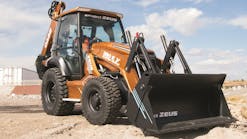Allen Levenson, vice president of marketing for United Rentals in Greenwich, CT, points out that until recently it was difficult to find good rental equipment. “The rental industry has changed a lot over the past few years. The industry has experienced phenomenal growth driven by the availability of more and better equipment.” He also states that in the past, the industry was fragmented. “As larger rental companies bought up small mom and pop stores, it became easier to raise investment funds to boost the rental fleets.” He reports that United Rentals is now the largest equipment rental company, with 512 branches throughout the United States and Canada.
A factor that once affected rentals was the stigma assigned to rentalequipment: You had to own our own iron. But when the trend toward corporate outsourcing hit the industry, this stigma disappeared. As a general contractor, Snow indicates, “The only thing we’re concerned with is if [the subcontractors] have enough equipment and enough manpower to get the work done. We have no control over whether our subs rent,own, or own-to-lease equipment.”
Levenson says that the decision to rent will depend on an individualcompany’s circumstances. For the most part, companies are better off renting if the equipment will not be fully utilized under normal operations. “Utilization rates have to reach 50 to 80 percent to take into account all the costs of ownership and still pay out.”
Some companies, however, would rather rent equipment than take on additional overhead, because rentals are always working. Whelan points out, though, that equipment is only overhead when it’s sitting around. “As long as it’s working, it’s not overhead.”
Levenson summarizes why companies rent in terms of cost savings and operating advantages:
- Cost Savings. Generally lower cost when downtime, service and maintenance, and other ownership costs are taken into account. No costs while equipment is sitting idle. No parts inventory required. No service and parts invoice processing costs. No warehousing and storage costs. No equipment disposal costs. Generally, tax savings.
- Operating Advantages. If equipment breaks down, factory-trained technicians fix it immediately. Latest technology for application, increasing productivity. New equipment results in satisfied operators. Rental company moves equipment from site to site. It’s difficult to attain critical mass on service. No work-rule issues. Opportunity to try different brands or types of equipment.
Levenson also indicates that there are a number of financial advantages to renting equipment. Renting frees up capital to invest in your primary business, it requires no down payment, it increases borrowing capacity since equipment does not appear on your balance sheet, and it increases your cost control since it can be difficult to know the true cost of ownership.
On the safety side, Levenson points out that rental equipment receives routine preventative maintenance and is compliant with all OSHA/ANSI regulations.
He cites maintenance costs as the primary reason why there is a trend toward long-term rentals. According to Levenson, some corporations are selling off their fleets to rental companies, then renting them back. “Maintaining equipment in-house, particularly where labor rates are high, can be very costly.” With rental, you do not have capital tied up in inventory, and there is no downtime from mechanics’ vacations.
Rental has its downsides, though. According to Brad Phillips, co-owner and vice president of Phillips Excavating in Alpha, OH, you lose control over your equipment when you rent. “I’d hate to be totally dependent on a rental company for all of my equipment needs.” Phillips remarks that in his area, rental equipment is not always available when he needs it. He also notes that if equipment breaks down you are at the mercy of the rental company to service it. If the company is short on service technicians, it can take a few days. He stresses that rental has its place in every business, though. Phillips Excavating will rent certain equipment-hand tools and sometimes used specialty equipment, for instance. As a rule of thumb, if equipment will only be used for one month out of the year, Phillips will consider renting it. With a 12-bay garage and six full-time mechanics, service is not an issue for this company. Its mechanics are all certified and receive regular training from the dealer. Storage is not an issue either. Situated on 80 ac., Phillips Excavating has plenty of land to store heavy equipment. Because of its size, the company can also afford six tractor-trailers that are used to move equipment around. “[Moving equipment] is a cost of doing business.”









